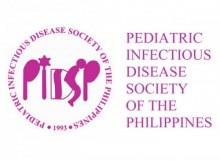Journal 2017 Vol.18 No.1
Association Between Breastfeeding And Clinical Outcomes Of Infants With Very Severe Pneumonia
Cherrylyn R. Laguna-Cruz, M.D., Gener T. Becina, M.D.
Association Between Breastfeeding And Clinical Outcomes Of Infants With Very Severe Pneumonia
Cherrylyn R. Laguna-Cruz, M.D., Gener T. Becina, M.D.
Objective: To determine the association of breastfeeding with the clinical outcomes of infants with very severe pneumonia.
Methods: This retrospective study included intubated, full-term infants between one to six months of age admitted for very severe pneumonia at the critical care units of the National Children’s Hospital from 2005 to-2015. The 52 subjects per type of feeding (exclusively breastfed and non-exclusively breastfed) were selected using simple random sampling. We examined the association between the type of feeding with the length of ICU stay, ventilator days, health-care-associated infection (HAI) and mortality.
Results: A total of 104 infants were included in the study. The exclusively breastfed (EBF) infants stayed for a shorter amount of time in the ICU than the non-exclusively breastfed (NEBF) infants (p-value = 0.0067). The EBF infants had shorter intubation period and mechanical ventilation use (p value=0.001), and less HAI (p-value = 0.015). There were more infants with very severe pneumonia who died from the NEBF group but no significant association (p-value = 0.076) was found between mortality and the type of feeding.
Conclusion: Exclusively breastfed infants who were admitted for very severe pneumonia at the critical care areas showed better outcomes in terms of shorter ICU stay and ventilator use, and lower incidence of HAI as compared to the NEBF infants. However, data showed no significant association between mortality and type of feeding.
| View Full Article in PDF format |
